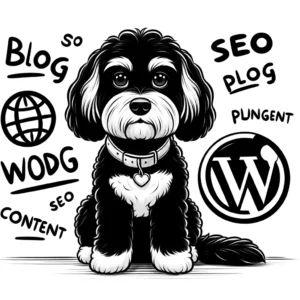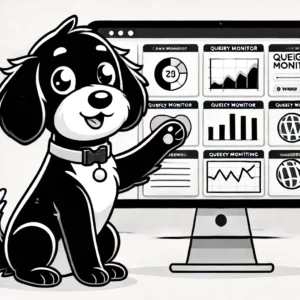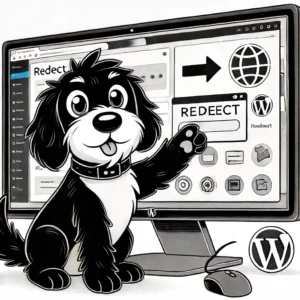Choosing the Right Blogging Platform
When selecting a platform for blogging, individuals and businesses face a crucial decision that impacts their ability to grow an audience, customize their content, and control their site’s future.
WordPress vs. Other Platforms
WordPress.org and WordPress.com are two distinct entities under the WordPress umbrella. WordPress.org is a self-hosted platform that gives users full control over their blogs. This requires bloggers to procure their own hosting and domain name, but yields a high degree of customization and flexibility. On the other hand, WordPress.com provides a hosted solution with various plans, including a free tier, simplifying the setup process at the expense of reduced control and potential for growth.
Platforms like Squarespace and Wix offer website creation with integrated blogging capabilities. These are known for their intuitive design interfaces, making them accessible for users without technical skills. They combine hosting and domain services, reducing the complexity of getting started, although they may carry higher long-term costs and less adaptability than WordPress.org.
Medium is a content-focused platform, suitable for those primarily seeking exposure and an existing audience, but offers limited design options and monetization control. Whereas Ghost is a newer entrant emphasizing a clean, minimalistic blogging experience with a focus on speed and SEO, it resembles the self-hosted nature of WordPress.org but with a more streamlined and modern approach.
When comparing WordPress to other platforms, consider the following:
- Customization: WordPress.org leads with extensive themes and plugins.
- Ease of Use: Squarespace and Wix win for drag-and-drop simplicity.
- Ownership: Self-hosted platforms like WordPress.org give full site ownership.
- Cost: WordPress.com and Medium can start free; Wix and Squarespace often entail a monthly fee.
- Flexibility: WordPress.org excels with its vast ecosystem, allowing for growth and scalability.
In summary, bloggers should base their choice on their technical comfort, desire for control over branding and content, and plans for site monetization. Each platform has inherent trade-offs and excels in different aspects of the blogging experience.
Setting Up Your WordPress Blog
When embarking on your blogging journey, setting up your WordPress blog is straightforward, requiring a few key decisions about the platform version, hosting, and domain name. Making informed choices in these areas will lay the foundation for your blog’s success.
WordPress.com or WordPress.org
First, one must decide between WordPress.com and WordPress.org. WordPress.com offers a hosted solution: it’s quick to set up, maintenance-free, and provides a subdomain. Conversely, WordPress.org is a self-hosted WordPress option, giving one complete control over their blog and allowing for the use of custom themes and plugins.
Choosing a Hosting Provider
For those opting for self-hosted WordPress, selecting a hosting provider is crucial. Hosting providers like Bluehost often give a seamless WordPress installation process and features like a free domain for the first year, 24/7 support, and various pricing plans. One’s choice of hosting provider should align with their technical needs, budget, and long-term goals for their blog.
Selecting the Perfect Domain
The next step is securing a custom domain name. A domain name should reflect the blog’s content and be memorable for visitors. Many hosting providers offer a free domain for the first year, after which one can renew it annually. If one goes with WordPress.com, one can start with a free subdomain and upgrade to a custom domain as one’s blog grows.
Customizing Your Blog’s Design
Creating an aesthetically pleasing design for one’s WordPress blog is essential as it reflects the brand’s identity and enhances the reader’s experience. By leveraging the flexibility of themes and layouts, users can tailor their site’s appearance to their liking without compromising functionality.
Selecting Themes and Layouts
The choice of a WordPress theme is pivotal when beginning the customization process. WordPress offers a wide array of free themes as well as premium options, each catering to different design preferences and functional requirements. Users should look for themes that align with their brand’s style and the content’s tone.
Themes offer various templates and layout options, ensuring that each page layout can serve the specific needs of the content it hosts. Whether one desires a traditional blog roll front page or a dynamic magazine-style grid, themes offer these layouts through an intuitive interface.
The block editor, also known as Gutenberg, has revolutionized how users customize and create content. With its drag-and-drop capability, the block editor allows for easy adding, arranging, and styling content. Users can construct blog posts with diverse media and text blocks without coding or understanding HTML.
Advanced design tools within WordPress also facilitate deeper customization of themes. The appearance settings control elements like colors, fonts, and header images. For those seeking a unique touch, some themes permit custom CSS adding, meaning one can create a completely custom look with the requisite coding skills.
In conclusion, customizing a blog’s design in WordPress is accessible to users of all skill levels, thanks to an extensive selection of themes, user-friendly design tools, and the adaptable block editor. These features empower users to express their vision and captivate their audience with a unique and functional online presence.
Managing and Creating Content
In the realm of blogging, effectively managing and creating content in WordPress hinges on understanding the intricacies of the content management system and leveraging the right tools for optimization and functionality.
Optimizing for Search Engines
Search engine optimization (SEO) is key for bloggers to maximize their online presence. WordPress, equipped with a robust set of SEO tools, allows content creators to enhance their blog posts for better visibility in search results. Plugins can dramatically improve a site’s SEO by guiding the writer through key optimization steps such as keyword inclusion, meta descriptions, and readability checks.
To further bolster SEO, content should be regularly analyzed with tools like Google Analytics to track performance and user engagement. This enables bloggers to refine their strategy based on data-driven insights. Each piece of content within WordPress must align with user intent and search engine algorithms.
Utilizing WordPress Plugins
WordPress plugins are integral to augmenting the functionality of a blogging platform. They can transform the block editor and expand the WordPress dashboard capabilities, making content management more streamlined. When selecting plugins for managing and creating content, key considerations should include features for:
- Automated content scheduling and publishing
- Social media integration for wider content distribution
- Advanced analytics for comprehensive performance tracking
- Customized forms and interactive features to enhance user experience
Plugins like Akismet for spam protection and Jetpack for performance and security are also essential. They ensure that content not only reaches its audience but that interaction with the site is safe and efficient. With the right plugins, WordPress can be a powerful ally in content creation, distribution, and management.
Growing and Monetizing Your Blog
Growing a WordPress blog involves attracting more visitors and building a community while monetizing it means implementing strategies to generate profit from the gathered audience. Both require a focused approach and can significantly benefit bloggers aiming to establish an online presence and business.
Engaging With Readers and Community
Engagement is crucial for expanding a blog’s readership. Bloggers should actively communicate with their readers through comments, emails, and social media platforms. This fosters a sense of community, increasing the likelihood of visitors returning and sharing the blog’s content.
Utilizing analytics tools can provide insights into reader preferences and behaviors, allowing for tailored content that resonates with the audience. By understanding what readers value, bloggers can create more compelling stories and relevant content, which supports audience growth.
For monetization, options like placing display ads, setting up an online merchandise store, or offering premium content are standard methods. Services such as HubSpot Blog provide various strategies to leverage a blog for profit, like affiliate marketing or selling exclusive content. On the technical side, ensuring your WordPress blog has sufficient storage and handling capabilities is essential for supporting a growing visitor base.
Integrating social media can significantly boost a blog’s visibility. Social sharing tools allow readers to spread content across their networks, extending the blog’s reach and potentially increasing revenue streams.
Bloggers can opt to sell products or services directly related to their expertise. This approach aligns with providing value and maintaining the community’s trust while generating income.
Maintaining a WordPress blog requires attention to detail and a strategic approach. Bloggers must focus on community engagement and carefully select monetization tactics compatible with their audience’s expectations and the blog’s subject matter.












